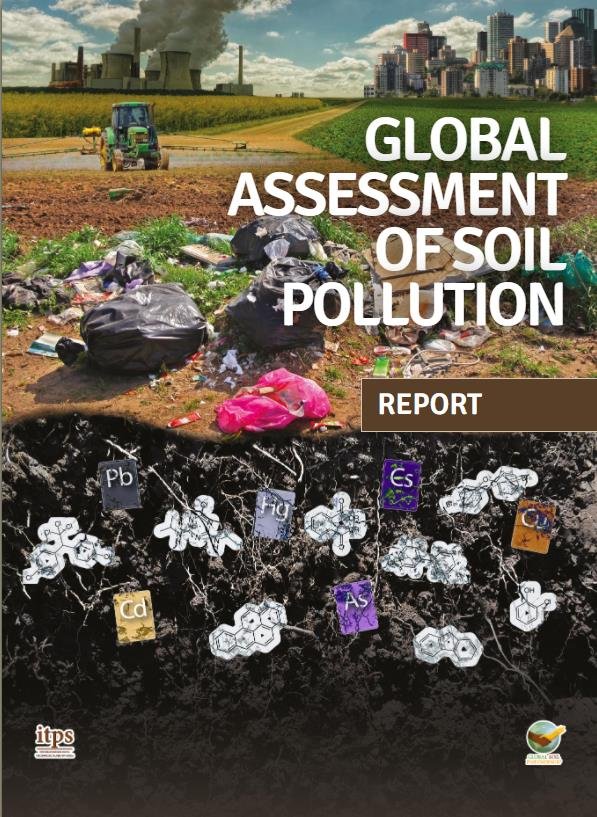- Share this article
- Subscribe to our newsletter
Global Assessment of Soil Pollution
Worsening soil pollution and waste proliferation threaten the future of global food production, human health and the environment, and require an urgent global response, according to The Global Assessment of Soil Pollution released by the Food and Agriculture Organization of the United Nations (FAO) and the United Nations Environment Programme in early June 2021.
Soil pollution crosses all borders and compromises the food we eat, the water we drink and the air we breathe. The joint assessment found that widespread environmental degradation caused by soil pollution, due to the growing demands of agri-food and industrial systems and an increasing global population, is getting worse and is one of the world's major challenges for ecosystem restoration.
Industrial and mining activities, poorly managed urban and industrial waste, fossil fuel extraction and processing, as well as unsustainable agricultural practices and transport, were identified as the main sources of soil pollution.
The report found:
- The use of pesticides increased by 75 per cent between 2000 and 2017, with some 109 million tonnes of synthetic nitrogen fertilisers applied worldwide in 2018.
- The use of plastics in agriculture has increased significantly in recent decades, with 708 000 tonnes of non-packaging plastic consumed in agriculture in the EU in 2019.
- The global annual production of industrial chemicals has doubled to approximately 2.3 billion tonnes since the beginning of the 21st century and is projected to increase by 85 per cent by 2030.
- Waste production is also on the rise. The world currently produces 2 billion tonnes of waste annually and that is predicted to rise to 3.4 billion tonnes by 2050 due to population growth and urbanisation.
The FAO-UNEP assessment predicted soil and environmental pollution would continue to deteriorate unless there was a shift in production and consumption patterns and a stronger political commitment to support sustainable management and to fully respect nature. The COVID-19 pandemic has also increased pressure on the environment by intensifying the release of waste.
The report noted that greater research is required to determine the extent of soil pollution, while stressing the proliferation of organic contaminants and others such as pharmaceuticals, antimicrobials (that lead to more resistant bacteria), industrial chemicals, and plastic residues are of growing concern.
The global assessment indicated that the remediation of polluted soils is complex and costly, and emphasised the need for prevention to avoid a worsening situation. It called for the establishment of a Global Soil Pollution Information and Monitoring System, stronger legal frameworks for preventing and remediating polluted soils, and initiatives to foster technical cooperation and capacity development.
(FAO/ile)
Read more at FAO website and download The Global Assessment of Soil Pollution





Add a comment
Be the First to Comment